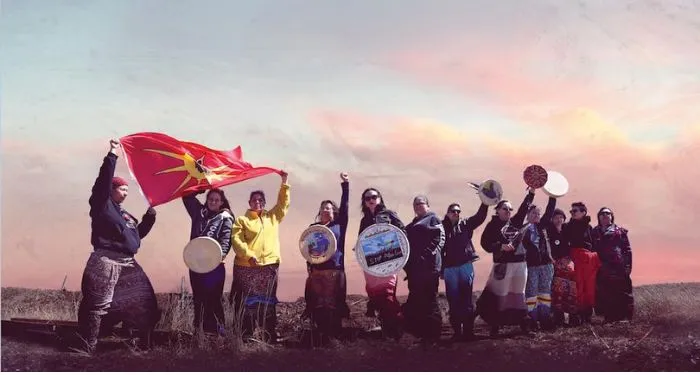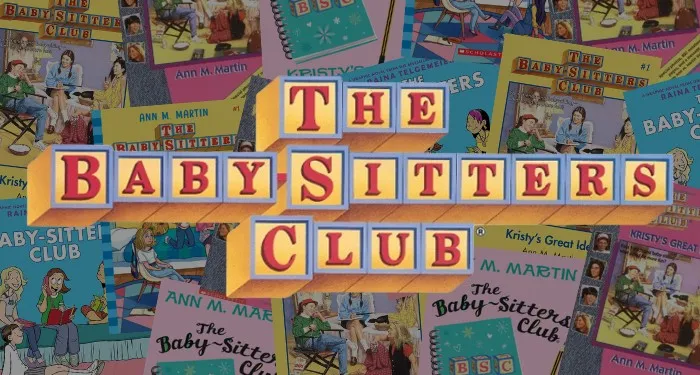Developing into the leader that people want to follow
In Becoming, David T. Jenson delivers a powerful and personal roadmap to becoming the kind of leader people choose to follow—not because they have to, but because they want to. Through compelling stories, real-world examples, and actionable insights, Jenson explores what it means to lead with integrity, own your impact, and inspire others through selflessness, transparency, and vision.
Whether you're leading a team, building a business, or simply striving to grow, Becoming challenges you to take full ownership of your journey, embrace continuous development, and lead with purpose. It’s not just a book—it’s a mindset shift.
This project was written by David with you in mind. What truly drives David is his passion for helping others unlock their potential. He finds the greatest fulfillment in mentoring emerging leaders, guiding them through growth and transformation, and celebrating their successes. His leadership philosophy centers on empowering individuals to step confidently into new roles and responsibilities.
Amazon Kindle Amazon Hardcover Author's Amazon Page
Excerpt from Becoming © Copyright 2025 David T Jenson
There are many misconceptions about leadership, and about what makes a leader. Often, we make the mistake of assuming a position, or something that puts an individual in a perceived elevated role, makes them a leader. In most organizations, a position makes someone a “leader.” In sports it is a team captain, or the most skilled player. In some cultures, or family situations it is the Elder, or the person with the most experience. None of these situations are bad, but none of these necessarily make someone a leader, even if it puts them in a position to more easily use leadership.
Leadership does not come from a title or a position we are given. Even though those titles and positions can better help us use our leadership to guide people, leadership at its core comes from influence. We can have influence regardless of our position or age. Influence is something we gain from people as we build relationships and prove we are worthy of trust.
Leadership without influence is simply trying to lead by position, and leading by position can never be as effective as having people who want to follow you. We all have many examples of people who try to lead from a place of power or position and struggle to get people to follow them. However, we also have many examples of people leading through their influence and naturally becoming leaders, even if they didn’t necessarily seek it out.
The first step we need to look at is, how do we gain influence with people? There are several ways we can increase our influence. A few I will discuss here are trust, selflessness, and transparency. As we gain influence, our ability to lead people will make it easier for us to take positions of authority and be successful in those positions.
Trust
Trust is one of the first things we need to increase our influence with people. It seems like a very simple thing. But when we don’t trust people, we don’t want to follow what they do or what they say. Without trust, we will tend to question, and doubt what our leaders are trying to ask us to do. When there is trust, we can believe that our leader has our and the organization’s best interests at heart and we will be more willing to follow them. Trust is what we need to gain with our people. We build trust by not giving people a reason to doubt us. By being honest, forthright, and open with our people about what we’re trying to do and what’s happening in the organization we will be able to gain their trust, and they will be more open with us. You earn trust by first giving trust. If you don’t trust your people and you treat your people as if they do not need to know all the information, they will withdraw from you. You need to give that trust and then they in turn will feel more like they can trust you. If we give people an opportunity to doubt us by being dishonest and by not sharing information, over time we will not be able to lead them effectively anymore. They must know we are honest and open with them consistently.
One of the best examples of trust I can point to is found in Marvel Comics. Since I was a young boy, I’ve always loved comic books. I had a speech impediment, and my parents were very eager to help me in any way they could to overcome this difficulty. They would buy books that I was interested in to try and help me. Very quickly I was drawn to love comic books. Comic books opened a world of good vs evil, with heroes doing what was right and overcoming obstacles in their path. As I have gotten older, it has been exciting to watch some of my favorite characters come to life on the big screen. The Marvel Cinematic Universe (MCU) is a series of movies that many people are very familiar with and has had a great run for a decade plus. Throughout the first ten years of the MCU the Avengers are formed to combine their abilities to defend the Earth from a variety of threats. On this team you have many interesting characters with very diverse backgrounds. One of the characters is Tony Stark, or Iron Man. He is a billionaire who funds and pays for everything the Avengers need throughout multiple movies. He provides the building, the equipment, and he provides the relationship with government officials and different countries (Favreau, 2008). For all intents and purposes, he is a big part of how the Avengers can exist and have the equipment they need. In addition to Tony Stark, you also have Thor on the team. Thor is by birthright a King. He Is currently a king in waiting and is preparing to rule all of Asgard. Being from Asgard, he is also considered to be a God in the movies and comics. His duty is to defend many of the different realms in the universe, including Earth (Branagh, 2011). You have these two very dynamic characters, one who is a king by birthright, and one who is the financial backing of the Avengers. Either of these characters seem like an easy choice to be the leader of the Avengers, the individual who would take them forward and guide them in what they should do and how they should act. However, as the movies go on, another character becomes the obvious leader of the team. This is Captain America, aka Steve Rogers.
Steve was born into a poor family in Brooklyn, NY. As a young man, he was weak and frail. He was unable to defend himself or do much to help others. However, he was brave and never backed down from trying to help those around him. Despite how frail he was, he never backed down or gave up. As he grew up World War II began, and he wanted desperately to be a part of the war and to help defend people who couldn’t defend themselves. He went and tried to join the military several times, each time being denied and told that he was not fit for service. Eventually he is seen by Dr. Abraham Erskine who sees the bravery and selflessness Steve possesses. This doctor has developed a super soldier serum, and his main priority is making sure that the right person gets this serum. The person with the correct set of values who will use the power given to them for good. There’s a disagreement in the military about who the right person should be. Most people feel that a strong obvious leader who the men would follow is the right person to have this serum. However, this doctor realizes that somebody who wants to help people, somebody who knows what it is to be defenseless is the right person to be given great power. After Steve Rogers is given this serum, he goes on to become Captain America and makes many sacrifices during World War II to protect and save others. Eventually to protect many people, he crashes a large plane into the norther artic, leading to him being frozen in ice for about 50 years. Once he is awakened and joins the Avengers, even though he has no inheritance or wealth he quickly becomes the leader of the team (Johnston, 2011).
Tony Stark is the financial backing of the team. Thor is a king in waiting. However, Steve Rogers is the person that the team knows they can trust to make the right decision and to act unselfishly time and time again throughout the movies. Steve Rogers does not give up and puts others thoughts and feelings above his own. Due to his willingness to listen to others, and do what is right time and time again, people follow him. Later in the movies, there’s a civil war between the Avengers and a large part of the Avengers follow Steve Rogers, even though the government and everybody else is against him. Later because of the leadership role he has on the team, Steve Rogers is the character who is decided to say the iconic line of “Avengers assemble” at the end of the MCU Infinity saga in Avengers Endgame. He is the one who says this line not because of his means or kingly inheritance. He is simply the person the team trusts and chooses to follow.
In the comics, Captain America has a very famous speech that I have always loved and has always stood out to me. It is the comic book version of the Civil War storyline. Peter Parker is having doubts about who side he should be on between Captain American and Iron Man. Captain America, iconically, looks at him and says the following,
“Doesn’t matter what the press says. Doesn’t matter what the politicians or the mobs say. Doesn’t matter if the whole country decides that something wrong is something right. This nation was founded on one principle above all else: The requirement that we stand up for what we believe, no matter the odds or the consequences. When the mob and the press and the whole worldtell you to move, your job is to plant yourself like a tree beside the river of truth and tell the whole world– No You Move.” (Staczynski, 2007)
Moments like these are the reason that this fictional character is constantly trusted in comics and constantly used as an example of someone that you can trust. We need to build this similar type of trust with our people, and we can only do this by being consistent and open with them and never giving them a reason to doubt what we say. We have to say what we mean and mean what we say, or our people will find a reason not to follow us.
One of the other ways we gain trust is by being able to be honest and have hard conversations with people. Often when we have people report to us, or people that we work with, we worry about hurting people’s feelings and demotivating them. We are avoiding having a hard conversation because it is hard, and it is something that we do not want to do. We are acting selfishly. We are not thinking of that person and putting them first. Part of building trust is having a good enough relationship that we are willing to tell people when we think they have made a mistake or when something needs to be corrected. Whether this is someone that reports to us, someone we work with, someone we know, or even someone we report to, we need to build trust by being open and honest with them. This doesn’t mean that we act emotionally or try to punish them so that we feel better. What it means is that we approach people in a positive way. Let them know our observations and our concerns and ask if there’s something that we don’t understand or something that we don’t see. If we approach situations with the intent of helping and caring about the individual, we will be able to tell people things that may be hard to hear. There are times that I have delayed having hard conversations with people because I am frustrated or I am upset and I know in those moments the way I will approach the situation is from an attacking standpoint, not a building standpoint. We can build trust with people if we truly try to be open and give direction. When we truly want to help them improve and approach the situation from that standpoint, we can build trust and improve the relationship. Trust is not built by always being warm and fuzzy. Trust is built by going through hard things and being able to be open and honest with people in a way that both of you can grow and develop from.
When we do make a mistake and we break trust, we must be open and honest about it. Making the mistake is not unrecoverable from, however we will have to be mature enough to approach people and let them know that we either did not have the full information, or that we shouldn’t have said what we said. We must apologize and be vulnerable. We are all human. We all make mistakes. Acknowledging our mistakes shows that people can trust us and that we will be upfront when error. It is imperative that when mistakes are made, or situations are handled incorrectly, we make amends so that we can move forward and continue to build that trust. Many times, going and apologizing provides the opportunity to gain more trust than we would have originally because it shows that we care about the individual or are willing to admit when we are wrong. Trust is a fragile thing, and as long as we protect that trust with each of the individuals that we are seeking to have influence with that trust will continue to grow. As there is more trust, we will be able to have more influence with those people and have the opportunity to be seen as a leader by them.

My profession is online marketing and development (10+ years experience), check my latest mobile app called Upcoming or my Chrome extensions for ChatGPT. But my real passion is reading books both fiction and non-fiction. I have several favorite authors like James Redfield or Daniel Keyes. If I read a book I always want to find the best part of it, every book has its unique value.




















 English (US) ·
English (US) ·